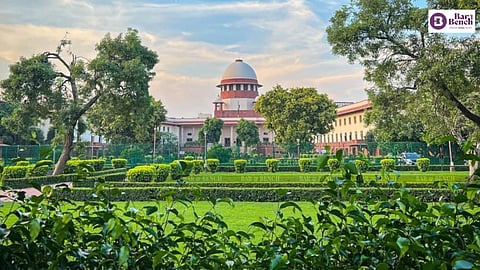
- Latest Legal News
- News
- Dealstreet
- Viewpoint
- Columns
- Interviews
- Law School
- Legal Jobs
- हिंदी
- ಕನ್ನಡ

In a previous article entitled Powers of court under Section 9 Arbitration Act wider than powers under CPC for grant of interim relief: Supreme Court holds, we examined the judgment delivered by the Supreme Court in Essar House Private Limited v. Arcellor Mittal Nippon Steel India Limited, wherein it was held that a court granting interim relief under Section 9 of the Arbitration and Conciliation Act, 1996 is not strictly bound by procedural stringency, rigours and technicalities of the Code of Civil Procedure, 1908 (CPC).
The Supreme Court in Essar held that Section 9 of the Act grants wide powers to the court to pass interim remedies, if the court is satisfied that the applicant for interim relief has a good prima facie case; the balance of convenience is in favour of interim relief as prayed for being granted; and the applicant has approached the court with reasonable expedition.
In such instances, a court cannot be constrained by the procedural technicalities of CPC while granting interim relief. The Supreme Court in Essar also ruled that proof of actual attempts to trade with, remove, or dispose of property with the intent of defeating or delaying the realization of an anticipated arbitral award is not imperative for remedy under Section 9 of the Act and a substantial possibility of asset diminution would suffice.
Per contra, recently, the Supreme Court in the case of Sanghi Industries Limited v. Ravin Cables Ltd, antithetical to Essar’s decision, ruled that until and unless conditions mentioned in Order XXXVIII Rule 5 of the CPC are satisfied, commercial courts cannot not exercise their powers under Section 9 of the Act.
The appeal before the Supreme Court arose against the judgment dated February 11, 2022 passed by the Gujarat High Court affirming the order passed by the Commercial Court, Bhuj in an application under Section 9 of the Act. The Commercial Court, exercising its jurisdiction under Section 9 (ii)(e) of the Act, directed Sanghi Industries to deposit (in the court) the amounts under the respective bank guarantees pertaining to some purchase orders. The Gujarat High Court dismissed the appeal filed by the appellant against the said Section 9 order.
Analysis
While quashing and setting aside the Gujarat High Court judgment and that of the Commercial Court directing Sanghi Industries to deposit the amounts under performance bank guarantees, the Supreme Court observed that in a given case, all the conditions of Order XXXVIII Rule 5 of the CPC need to be satisfied. Further, the Commercial Court has to be satisfied that the opponent party is trying to sell its properties to defeat the award that may be passed and/or any other conduct on the part of the opponent party which may tantamount to an attempt to defeat the award that may be passed in the arbitral proceedings. In such cases, the Commercial Court may pass an appropriate order (under Section 9 of the Act) to secure the interest of the parties.
The Supreme Court further made an observation that the order(s) passed by the commercial court in an application under Section 9 of the Arbitration Act,1996 is basically and mainly by way of interim measures and all requirements of Order XXXVIII Rule 5 of the CPC need to be fulfilled before such an interim order is passed.
Concluding thoughts
In our previous article, we had highlighted the two approaches which different high courts were adopting while granting a remedy under Section 9 of the Act and which indeed created much scepticism. In wake of the same, it seems that the Supreme Court finally, while adopting an exclusive approach, gave finality (in Essar decision) to the issue of applicability of requirements of CPC (more specifically Order XXXVIII & Order XXXIX) while granting interim relief under Section 9 of the Act.
However, the recent decision in Sanghi Industries does not seem to be in comity with its previous decision in Essar on this issue. This lack of judicial synchronization may lead to indecision before various courts while exercising their discretion in awarding interim relief under Section 9 of the Act.
Sameer Bindra is a Senior Associate in the Dispute Resolution practice group of Khaitan & Co in the Mumbai office. Views are personal.